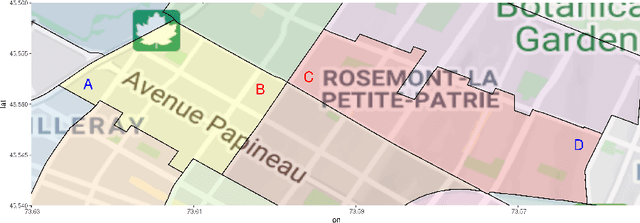Christopher Blier-Wong
Geographic ratemaking with spatial embeddings
Apr 26, 2021



Abstract:Spatial data is a rich source of information for actuarial applications: knowledge of a risk's location could improve an insurance company's ratemaking, reserving or risk management processes. Insurance companies with high exposures in a territory typically have a competitive advantage since they may use historical losses in a region to model spatial risk non-parametrically. Relying on geographic losses is problematic for areas where past loss data is unavailable. This paper presents a method based on data (instead of smoothing historical insurance claim losses) to construct a geographic ratemaking model. In particular, we construct spatial features within a complex representation model, then use the features as inputs to a simpler predictive model (like a generalized linear model). Our approach generates predictions with smaller bias and smaller variance than other spatial interpolation models such as bivariate splines in most situations. This method also enables us to generate rates in territories with no historical experience.
 Add to Chrome
Add to Chrome Add to Firefox
Add to Firefox Add to Edge
Add to Edge